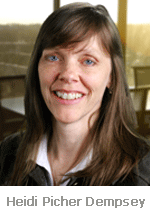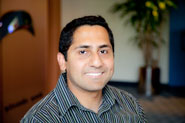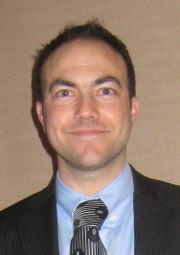| Version 10 (modified by , 9 years ago) (diff) |
|---|
GEC 22 Evening Demo Session
Location
Schedule
Tuesday 4.30pm - 7.30pm
Session Leaders
 |
 |
 |
| Heidi Picher Dempsey GENI Project Office |
Manu Gosain GENI Project Office |
Peter Stickney GENI Project Office |
Details
The evening demo session gives new and existing GENI experimenters and projects a chance to share their work in a live network environment. Demonstrations run for the entire length of the session, with teams on hand to answer questions and collaborate. This page lists scheduled demonstrations categorized in broad interest groups. You can download project posters and supplemental information from attachments listed at the bottom of this page.
Directions and Logistics
Please visit this page for attendee and presenter logistics information.
Projects
Infrastructure and Measurement
CloudLab
CloudLab provides researchers with control and visibility all the way down to the bare metal. Provisioning an entire cloud inside of CloudLab takes only minutes. Most CloudLab resources provide hard isolation from other users, so it can support hundreds of simultaneous "slices", with each getting an artifact-free environment suitable for scientific experimentation with new cloud architectures.
CloudLab is built from the software technologies that make up Emulab and parts of GENI, so it provides a familiar, consistent interface for researchers.
Participants:
- Rob Ricci, ricci@cs.utah.edu, Univ. of Utah
Experiments and Education
Networked Virtual Reality Based Training
This demonstration involves highlighting a distributed approach to training orthopedic medical residents using Virtual Reality (VR) based simulation environments; this application exploits the capabilities of Global Environment for Network Innovation (GENI)'s national test bed infrastructure. Our demonstration will show how expert surgeons in different hospitals can interact with medical trainees at others locations and teach them the fundamentals of orthopedic surgery. The high-definition multimedia streaming and haptic interfaces associated with the VR environment will enable trainees to remotely observe, participate and practice surgical techniques virtually from different locations (and also provides ‘on demand’ access to such medical educational and training resources).
The virtual environments will enable students to learn the appropriate way of performing orthopedic surgery. The traditional way of surgical teaching involves students first merely observing a ‘live’ surgery and gradually progressing to assisting experienced surgeons. Medical residents also learn through performing surgeries on cadavers; however, these approaches have limitations such as availability, cost and the remote possibility of infections, which limit their usefulness. A Virtual Reality based simulation environment is a practical compromise for addressing these concerns. We are working with Dr. Miguel Pirela-Cruz at the Texas Tech Health Sciences Center (TTHSC) in El Paso, Texas.
We did an initial demonstration at GEC 21 which was well received. Our plans are to show the use of haptic interfaces at GEC 22 with the presence of Dr. Pirela-Cruz.
Participants:
- M.B.Bharathi Raj Kumar, bhararm@ostatemail.okstate.edu, Oklahoma State
- J. Cecil, j.cecil@okstate.edu, Oklahoma State
- Parmesh Ramanathan, parmesh@ece.wisc.edu, Univ. of Wisconsin-Madison
- Aditya Prakash, aprakash6@wisc.edu, Univ. of Wisconsin-Madison
GENI Cinema
Video streaming over the Internet, be it static or live streaming, is rapidly increasing in popularity. Many video streaming services exist to serve a variety of needs, such as video conferencing, entertainment, education, and the broadcast of live events. These services rely heavily on the server application to adapt to increasing and decreasing demand for a particular video resource. Furthermore, they require the reallocation of resources and the restart of the stream when a client stops, starts, and/or switches to a different stream. SDN and specifically OpenFlow can be creatively used to reallocate some of these tasks to the network and link layers.
Our goal is to provide a scalable service for GENI using OpenFlow that supports the broadcast of live video streams from an arbitrary number of video-producers to an arbitrary number of video-consumers, where video-consumers can change “channels” without disrupting their existing stream and without affecting the load on a particular video stream source.
Participants:
- Ryan Izard, Ryan Izard, Clemson Univ.
- Kuang-Ching Wang, Kuang-Ching Wang, Clemson Univ.
- Qing Wang, qw@g.clemson.edu, Clemson Univ.
- Parmesh Ramanathan, parmesh@ece.wisc.edu, Univ. of Wisconsin-Madison
A Cyber Physical Test Bed for Advanced Manufacturing
This demonstration will be a milestone in the area of Digital Manufacturing and involves showcasing a GENI based cyber physical framework for advanced manufacturing. This Next Internet based framework will enable globally distributed software and manufacturing resources to be accessed from different locations accomplish a complex set of life cycle activities including design analysis, assembly planning, and simulation. The advent of the Next Internet holds the promise of ushering in a new era in Information Centric engineering and digital manufacturing activities. The focus will be on the emerging domain of micro devices assembly, which involves the assembly of micron sized parts using automated micro assembly work cells.
Participants:
- Yajun Lu, yajun.lu@okstate.edu, Oklahoma State
- J. Cecil, j.cecil@okstate.edu, Oklahoma State
- Parmesh Ramanathan, parmesh@ece.wisc.edu, Univ. of Wisconsin-Madison
- Aditya Prakash, aprakash6@wisc.edu, Univ. of Wisconsin-Madison
Federation / International Projects
International Federation ( US, Japan, Europe )
In this demo slice spread across three different virtualization platforms (VNode, GENI, Fed4Fire) are created. We will show how federated slice is created using the Slice Exchange Point mechanism, which enables whole slice to be managed by the network manager of any single virtualization platform.
Participants:
- Univ. of Tokyo
- Akihiro Nakao, nakao@iii.u-tokyo.ac.jp
- Shu Yamamoto, shu@iii.u-tokyo.ac.jp
- Toshiaki Tarui, toshiaki.tarui.my@hitachi.com, Hitachi
Enhancing Network Applications on VNode and GENI
In this demo, we show enhanced video streaming and big data applications via federation slice between VNode and GENI. In video streaming applications, we deploy multi-casting and transcoding functions dynamically into slice nodes according to the demands. Users can receive high quality video via limited bandwidth. In big data application, we try to transmit big data efficiently and safety via federation slice with US Ignite members.
Participants:
- Univ. of Tokyo
- Akihiro Nakao, nakao@iii.u-tokyo.ac.jp
- Shu Yamamoto, shu@iii.u-tokyo.ac.jp
- Toshiaki Tarui, toshiaki.tarui.my@hitachi.com, Hitachi
- Yoshinori Kitatsoji, kitaji@kddilabs.jp, KDDI
- NTT
- Yuuki Minami, minami.yuuki@lab.ntt.co.jp
- Kazuhisa Yamada, yamada.kazuhisa@lab.ntt.co.jp,
Wireless Projects
Attachments (31)
-
GEC22-GENI_VIRO-Poster.pdf (1.1 MB) - added by 9 years ago.
GENI-VIRO GEC22 Demo Poster
-
GEC22_poster-FLARE_Aki_Utokyo.pdf (1.0 MB) - added by 9 years ago.
FLARE demo
-
GEC22_NFDemo_GurkanBastin.pdf (1.5 MB) - added by 9 years ago.
Poster for Network Function Instantiation
-
GEC_22_DC.pdf (497.4 KB) - added by 9 years ago.
Drone-Carried-Ad-Hoc-Network
-
GEC22_GENI_Desktop.pdf (687.5 KB) - added by 9 years ago.
GENI Desktop Poster for GEC22
- GENI_3DTR_Poster.pdf (3.1 MB) - added by 9 years ago.
-
GEC22_Poster_R4.pdf (683.0 KB) - added by 9 years ago.
SDN-Supported Collaborative Approach for DDoS Flooding Detection and Containment
-
GEC22_poster_Aki_Utokyo.pdf (1.0 MB) - added by 9 years ago.
Application-driven Programmable Networking by FLARE
-
Poster_GENI_CVST_Ali_Tizghadam.pdf (1.3 MB) - added by 9 years ago.
Connected Vehicles and Smart Transportation
-
GEC22_PTaaS v2.pdf (1.9 MB) - added by 9 years ago.
Physical Therapy as a Service
-
gc-poster.pdf (3.7 MB) - added by 9 years ago.
GENI-Cinema-Poster.pdf
- Poster_VN.pdf (2.5 MB) - added by 9 years ago.
- eir_gec22.pdf (1.3 MB) - added by 9 years ago.
- Poster-MFTransport-GEC22.pdf (3.5 MB) - added by 9 years ago.
-
gec22-intl-sdx-poster-a.pdf (3.0 MB) - added by 9 years ago.
International SDX GENI GEC22 Poster A:
-
gec22-intl-sdx-poster-b.pdf (1.9 MB) - added by 9 years ago.
International SDX GENI GEC22 Poster B
-
GEC 22Poster.pdf (5.5 MB) - added by 9 years ago.
Ignite Pollution Visualization System
-
GEC22-poster-cloudlab.pdf (731.0 KB) - added by 9 years ago.
CloudLab poster for GEC22
-
RuleBasedSDNPoster.pdf (597.0 KB) - added by 9 years ago.
A high level rule-based language for OpenFlow
-
SituationalAwarenessResonseAndManagement.pdf (949.0 KB) - added by 9 years ago.
Creation of Situational Awareness for Emergency Response and Management Using Next Generation Gigabit Communication Systems
-
Hadoop-in-a-HybridCloud.pdf (324.5 KB) - added by 9 years ago.
Hadoop in a Hybrid Cloud
-
Aikat-GEC22-poster.pdf (2.2 MB) - added by 9 years ago.
Course Modules for Teaching Networking Concepts
- 1368Enhancing network applications on VNode and GENI details.pdf (2.7 MB) - added by 9 years ago.
- 1368Enhancing network applications on VNode and GENI poster.pdf (994.9 KB) - added by 9 years ago.
- 1367International Federation poster.pdf (1.9 MB) - added by 9 years ago.
- 1368Enhancing network applications on VNode and GENI poster-2.pdf (1.2 MB) - added by 9 years ago.
- gec22-Resilient microgrid enabled by programmable networks.pdf (1.8 MB) - added by 9 years ago.
- ConnectedColabPoster.pdf (428.2 KB) - added by 9 years ago.
-
GENI22_poster.pdf (1.1 MB) - added by 9 years ago.
Streaming Query Builder Poster
-
SDNSecposter-matt-spp-fixed.pdf (1.5 MB) - added by 9 years ago.
SDN Router Security in GENI poster
-
Enhancing_OF_SVC_Inspection.pdf (4.6 MB) - added by 9 years ago.
Enhancing an OpenFlow Network with Service Insertion and Payload Inspection
